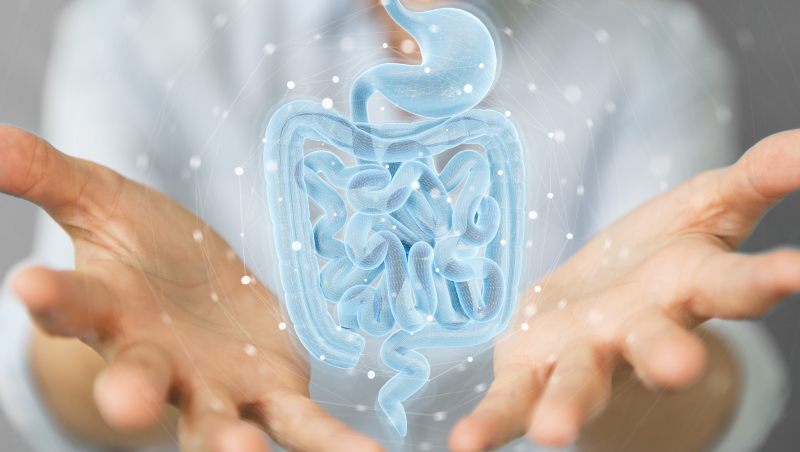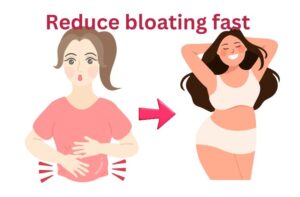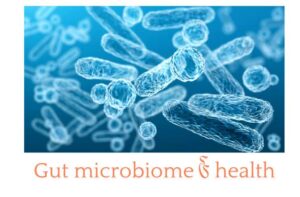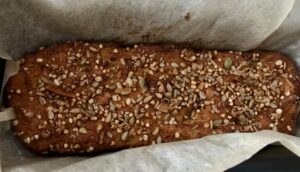Everything you wanted to know about probiotics and prebiotics

Probiotics vs prebiotics – you asked, and we answered
Targeted and personalised probiotics and prebiotics have earned a lot of hype, but do they work? Depending on your health goal, this guide clarifies and helps you look after your gut and microbiome.
Here are answers to the most frequently asked questions from our customers and patients at the gut health clinic.
Why should you take probiotics on an empty stomach?
In the fasted state, your stomach doesn’t produce many acids. This is the ideal time to take probiotics because they enter your gut very fast and start to act immediately.
When taking probiotics with food or after a meal, sensitive live bacteria interact with digestive enzymes. This environment is unsuitable for probiotic bacteria; some can die or lessen their efficacy.
Therefore, it’s best to take probiotics on an empty stomach, ideally first thing in the morning. This method will deliver the most impact and help you build a habit.
Beware antibiotics
If you’re on antibiotics, taking probiotics two hours later is crucial. The timing of probiotics and antibiotics is even more critical than taking probiotics on an empty stomach.
I am a celiac. Can I take probiotics?
For those with celiac disease, we recommend HIT for Digestion+®.
This unique blend of probiotics has been carefully selected to Be well-tolerated even by those with celiac intolerance, sensitive or weak digestion, histamine intolerance, or IBS.
These probiotics have been carefully selected from the right blend of strains, which are well tolerated even by people with celiac intolerance, sensitive or weak digestion, histamine intolerance, or IBS.
HIT for Digestion+® is a targeted blend of live bacteria, which:
- Repairs and significantly improves the function of gut microbiota,
- Optimises digestion,
- Probiotic strains directly support the microbiome
- Added omega-3 fatty acids (in powder format) aid in colonising beneficial bacteria and their longevity.
What else can you do?
The effect of targeted probiotics works best with prebiotics Microbiome+®, which act like a food for beneficial bacteria in your gut. Their main benefits are:
- Support of growth of probiotic bacteria
- Strengthen intestinal wall,
- Improve the function of the mucous barrier,
- Act like an antioxidant.
The main components of Microbiome+® are flavonoids hesperidin and naringin. Read more about their beneficial effects here [Read more in the clinical study here.]
Support your digestion in a Christmas gift for your loved ones: https://lauriger.com/iprobio/
The role of probiotics and prebiotics in IBS (irritable bowel syndrome)
Intestinal barrier dysfunction is present in a significant number of people with irritable bowel syndrome (IBS). The intestinal barrier is a single layer of cells that separates the intestinal lumen from the body’s internal environment. When this barrier is compromised, it can lead to intestinal dysfunction, mucosal immune activation and symptoms like abdominal pain. Prebiotic Microbiome+® works to repair the intestinal barrier with the help of flavonoids hesperidin and naringin derived from citrus fruit. Their main benefits are:
- Supporting the regeneration of the intestinal barrier
- Supporting gut barrier
- It acts as food for bacteria, which produce butyrate. – You ask – what is butyrate?
What is butyrate?
Butyrate is a short-chain fatty acid that your gut bacteria produce as a byproduct of the digestion of dietary fibre. The main benefits of butyrate are:
- Energy source for cells in our gut barrier
- Anti-inflammatory effect
- Supports gut barrier
- Regulates digestion
- Supports the balance of the gut microbiome.
These are some of the benefits of having enough butyrate for people with IBS.

What is the role of probiotics for people with SIBO (Small intestinal bacterial overgrowth)
Small intestinal bacterial overgrowth is a condition in which the amount of bacteria in the small intestine increases abnormally. This can lead to a number of uncomfortable symptoms, including abdominal pain and cramps, bloating, diarrhoea, often watery, and weight loss due to a lack of nutrient absorption.
Targeted prebiotics Microbiome+® can help support SIBO because:
- They assist in the regeneration of the gut barrier
- Support gut wall,
- Aid in butyrate production.
Butyrate is very important for the health of your gut, especially for people with SIBO.
Probiotics and prebiotics are not the same
Microbiome+® is not a probiotic – a dose of live bacteria. It is a prebiotic, a ‘feed’ for the microbes in your gut that promotes the growth of healthy bacteria. Understanding this difference will help you make better decisions about your gut health. Remember to consult your doctor or gastroenterologist for a specific diagnosis and plan.
Newsletter Subscription
Stay up-to-date on all the news from Lauriger
Table of Contents

Top 7 Foods to Eat Before Bed to Support Your Sleep Naturally [updated with tips on how to eat them]
Read More »Sign up to our newsletter
By subscribing, I accept the privacy policy and I give my consent to receive Lauriger emails about news and offers.
© 2023 Lauriger. All rights reserved.







